“She's a strange breed.” Jules et Jim (François Truffaut, 1962)
Nov
4
sweaters
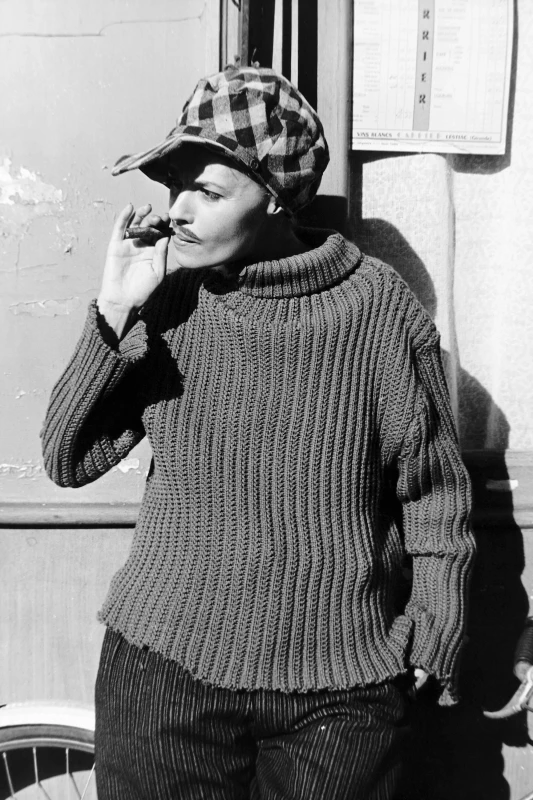
Catherine (Jeanne Moreau) in a raggedy, moth-eaten sweater and oversized newsboy cap, wears a moustache and smokes a cigar (via). DP: Raoul Coutard.
A movie with gorgeous sweater fashion*
– Jim
Throwing in a little Movember for good measure.
* the Bales 2025 Film Challenge for November is, again, not date-based, but follows a sloppy schmaltzy all-American Thanksgiving-y narrative. Trying to make it work my way.
Bales2025FilmChallenge
“A man with no country, will have no grave in the Earth, I forbid you to leave.” المخدوعون [Al-makhdu'un / The Dupes] (Tawfiq Saleh, 1972)
Nov
2
النَّكْبَة
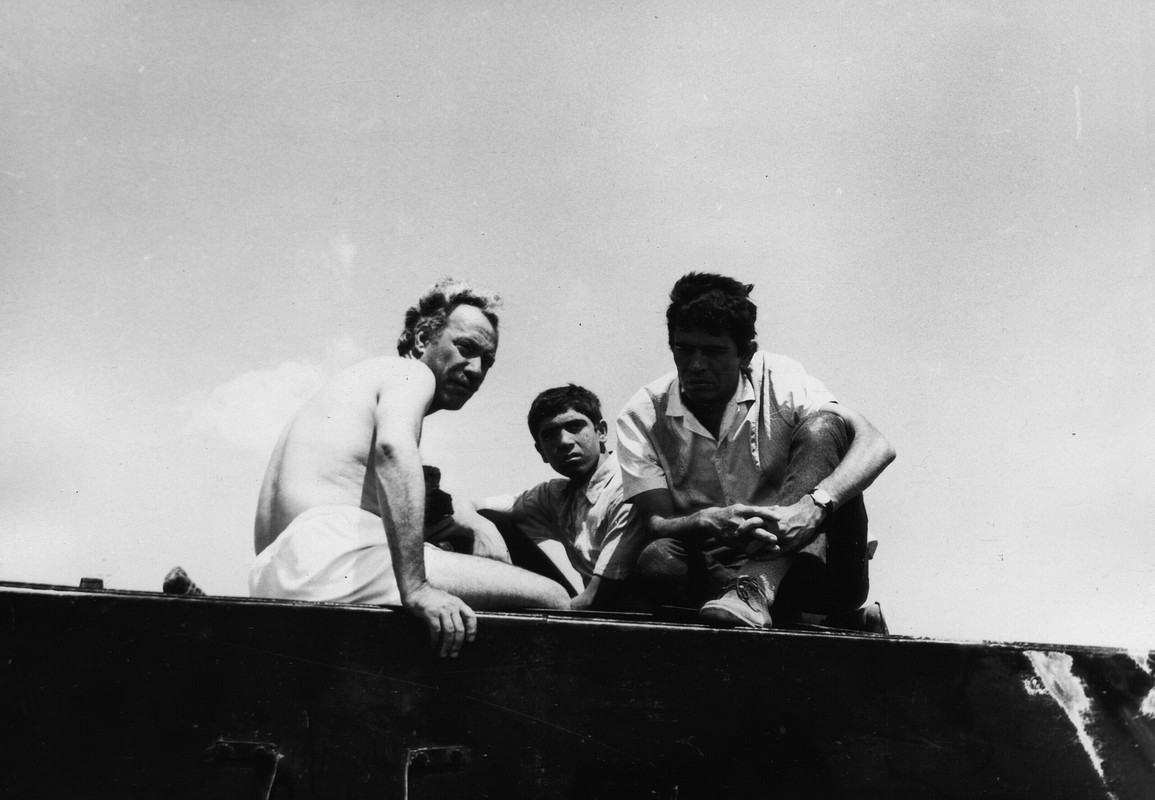
The three men on top of the water truck (via). DP: Bahgat Heidar.
Starting over*
– opening quote (via)
A few years after the start of the Nakba, three generations hope to make a new life for themselves. In the steel belly of a water truck, the men travel Palestine into Iraq, then crossing the desert towards the promised land, Kuwait.
* the Bales 2025 Film Challenge for November is, again, not date-based, but follows a sloppy schmaltzy all-American Thanksgiving-y narrative. Trying to make it work my way.
“Junge, du bist ja ganz woanders!” Bübchen (Roland Klick, 1968)
Nov
1
autumn
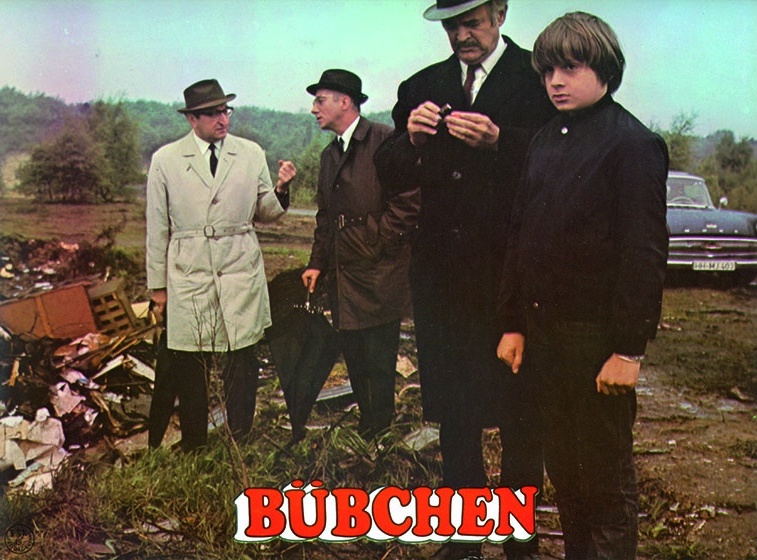
Lobby card. Achim (Alexander Kekulé) at a dreary, autumn-y scrapyard surrounded by several serious looking men in trenchcoats. Bübchen is an endearing term for a little boy (via (spoilers)). DP: Robert van Ackeren.
A movie that feels like autumn*
A family of four share the same house and live their own lives. When the parents attend a company party, the neighbour's teenage daughter reluctantly babysits the children then promptly runs off with her secret boyfriend. Left to his own devices, the bored 10-year old Achim plays a game with his little sister
I Initially nomintad the RAF critique Deutschland im Herbst (1978) for today's challenge, when I realised that Bübchen too is about Germany's youth's antics and the society that planted its seeds. Here again, a repressed community dutifully finds a way to bury the terror into the fabric of mundanity. You'll find it again in Michael Haneke's Das weiße Band (2009), now foretelling the German youth that came to embrace Nazism.
Eternal return, ad nauseam.
* the Bales 2025 Film Challenge for November is, again, not date-based, but follows a sloppy schmaltzy all-American Thanksgiving-y narrative. Trying to make it work my way.
“Well, as I said before, I say again, here's… Here's to a son… to the house of Frankenstein.” Frank Stein (Iván Zulueta, 1972)
Oct
30
Karloff
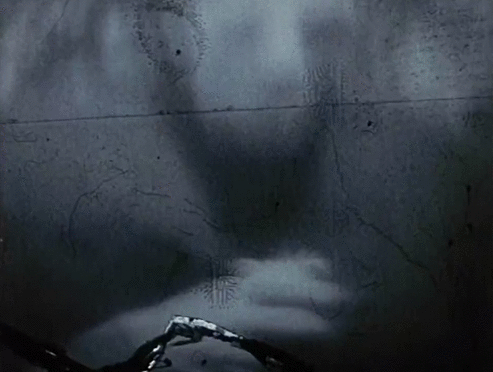
The Monster (Karloff) in Zulueta's recut (via). DP: Iván Zulueta / Arthur Edeson + Paul Ivano.
A [favourite] Boris Karloff film*
– Baron Frankenstein
Zulueta's mycotoxic fever dream of Whale's Frankenstein.
* the Bales 2025 Film Challenge for October is horror-themed as opposed to date-based, and is all about favourites. Expect non-horror and films I believe to be relevant instead.
“A premonition of a horror film” Outer Space (Peter Tscherkassky, 1999)
Oct
26

Barbara Hershey as Carla Moran. DP of The Entity: Stephen H. Burum.
[Favourite] psychological horror*
– tagline
Real horror is not found in broken dinner plates or corpuscular masses of light. It's in what the mind does with that input, in how those lux morph into human-like shapes. In how gusts of wind becomes larynx-touched voices. Cut up the neatly filed research papers and be left with the whispers of the mind.
* the Bales 2025 Film Challenge for October is horror-themed as opposed to date-based, and is all about favourites. Expect non-horror and films I believe to be relevant instead.
”'M. Valdemar,' I said, 'are you asleep?' He made no answer, but I perceived a tremor about the lips, and was thus induced to repeat the question, again and again. At its third repetition, his whole frame was agitated by a very slight shivering; the eye-lids unclosed themselves so far as to display a white line of the{n} ball; the lips moved sluggishly, and from between them, in a barely audible whisper, issued the words: 'Yes; — asleep now. Do not wake me! — let me die so!'” Il caso Valdemar [The Facts in the Case of M. Valdemar] (Gianni Hoepli + Ubaldo Magnaghi, 1936)
Oct
24

M. Valdemar on his deathbed.
[A] favourite horror movie overall*
– Edgar Allan Poe, The Facts in the Case of M. Valdemar (1845) (via)
A man agrees on being hypnotised while in the state of dying. This particularly haunting and efficiently gory film – the first in the genre – is the result.
* the Bales 2025 Film Challenge for October is horror-themed as opposed to date-based, and is all about favourites. Expect non-horror and films I believe to be relevant instead.
“No, I never left the wheel; not for a moment.” The Mystery of the Mary Celeste [Phantom Ship] (Denison Clift, 1935)
Oct
23
Bela Lugosi
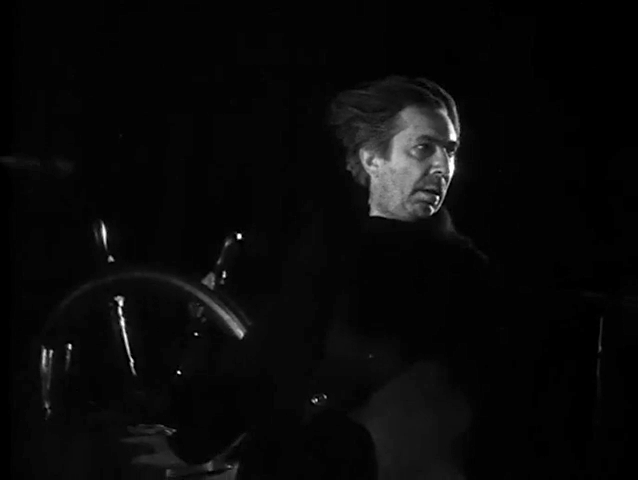
Anton Lorenzen (Lugosi) at Mary Celeste's wheel. DPs: Eric Cross & Geoffrey Faithfull.
[A favourite] Bela Lugosi film*
– Anton Lorenzen
A post-Dracula Lugosi demonstrates that he's more than the cursed aristocrat. An efficient early Hammer production, made just a year after their founding.
* the Bales 2025 Film Challenge for October is horror-themed as opposed to date-based, and is all about favourites. Expect non-horror and films I believe to be relevant instead.
“I never thought I could be friends with a German again. But here I am… Werner is somehow like Murnau brought back to life.” Nosferatu: Phantom der Nacht [Nosferatu the Vampyre] (Werner Herzog, 1979)
Oct
22
eternal returns
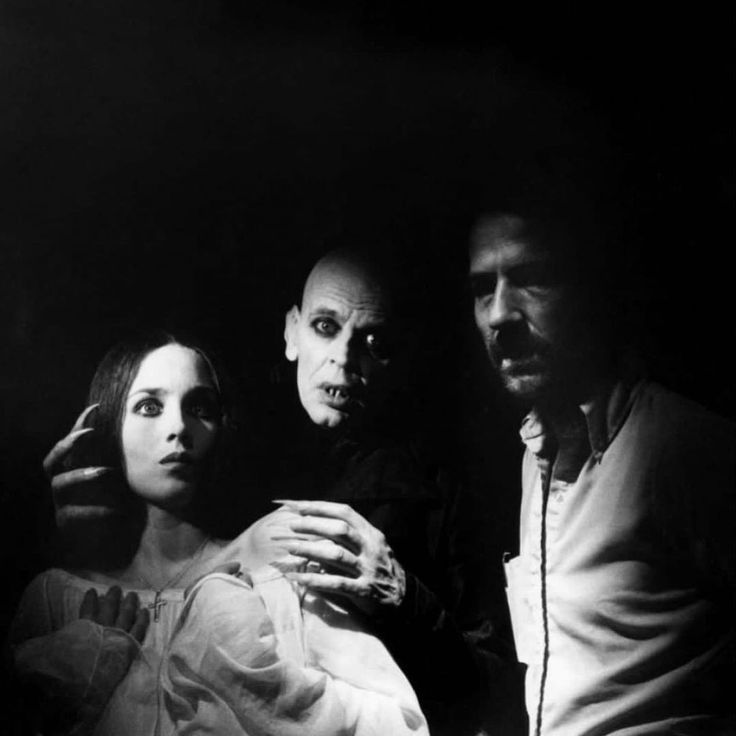
Adjani, Kinski, and Herzog on set. DP: Jörg Schmidt-Reitwein.
[A favourite] horror remake*
– Lotte Eisner visiting the set of Herzog's Nosferatu (via)
Coming back to Murnau's expressionist masterpiece was Herzog's bridge between the films made by the grandfathers of German cinema and his era. Herzog, born in 1942 Munich, noted this void created by that philistine regime and felt that, by picking up the thread cut a quarter of a century earlier, German culture could see a restoration to its (non-nationalistic) greatness. Thus a menagerie of rats and actors was released in a reluctant, bourgeois Dutch town.
But that's a story for another generation to draw upon.
* the Bales 2025 Film Challenge for October is horror-themed as opposed to date-based, and is all about favourites. Expect non-horror and films I believe to be relevant instead.
“Everything in this masterpiece contributes to its unity: the absolute mastery of editing and rhythm; slow motion, superimpositions, tracking shots, the mobile camera all play their roles and never gratuitously. The photographic quality, worthy of the most learned German operators, the lighting of the sets which envelops them in mystery, the sets themselves, neither realistic nor stylized, but as if sketched; the acting neither realistic nor expressionist, and yet adapted to the fantastic, to the violence; to the pauses; to the blur.” La chute de la maison Usher [The Fall of the House of Usher] (Jean Epstein, 1928)
Oct
21
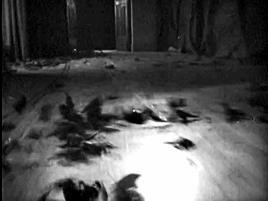
A rapid tracking shot along a dark corridor. Dead leaves follow the camera (via). DPs: Georges Lucas & Jean Lucas.
A favourite horror film adapted from a book or short story*
– Henri Langlois, via
A groundbreaking expressionist interpretation of Poe's inner horrors. Many of the tropes so common in later horror films, are fully fledged and present here.
* the Bales 2025 Film Challenge for October is horror-themed as opposed to date-based, and is all about favourites. Expect non-horror and films I believe to be relevant instead.
Swissmade [Swiss Made 2069] (Fritz E. Maeder, Fredi M. Murer + Yves Yersin, 1968)
Oct
20
Alien
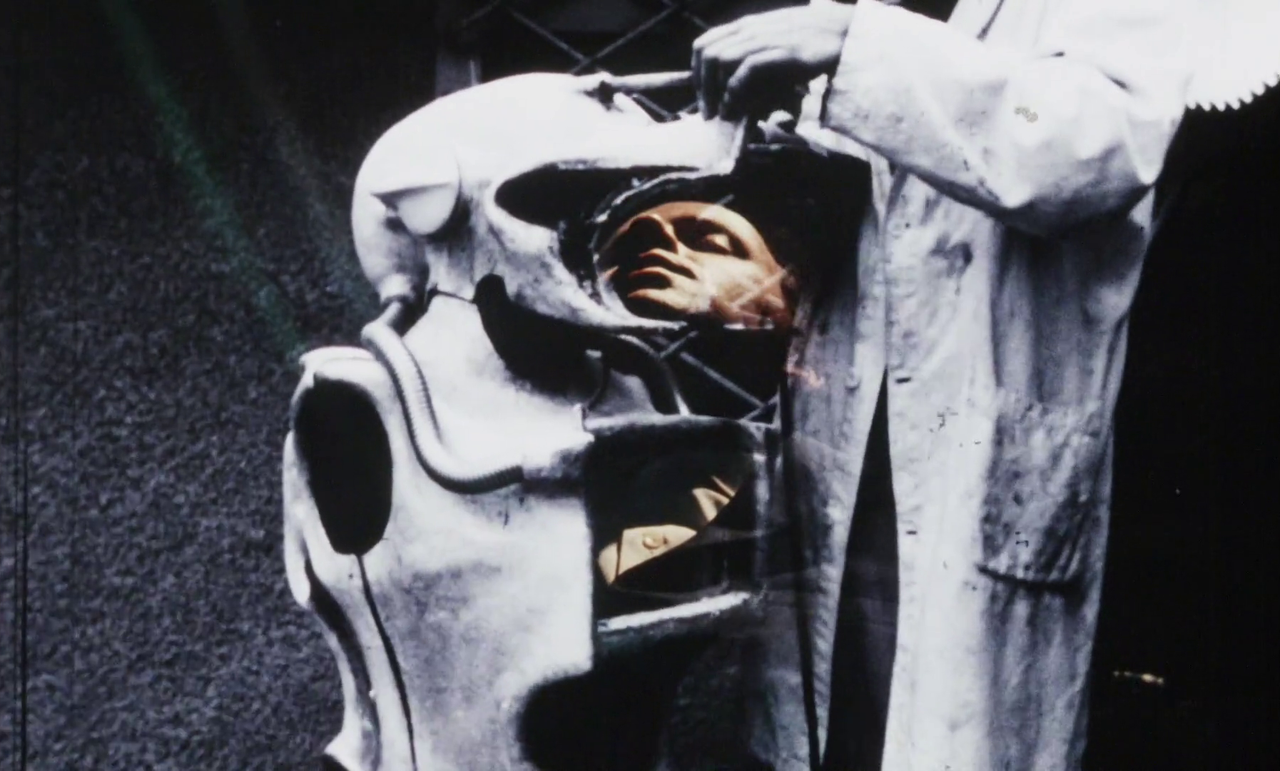
A man hooked up to a device with tubes dreams about a strange, unsettling creature. Just out of a frame someone (H.R. Giger himself) works on the being with a grinder. DPs: Witold Lesiewicz, Fritz E. Maeder & Fredi M. Murer.
[A favourite] Alien [“alien”?] movie*
Three segments envision the future of the Swiss Confederation. In the Fredi M. Murer instalment 2069 – oder wo sich Futorologen und Archäologen gute Nacht sagen, an alien visits surveillance state Switzerland. The visitor in question is designed by H.R. Giger, and glimpses of the XX121 xenomorph are present in its exoskeletal core.
* the Bales 2025 Film Challenge for October is horror-themed as opposed to date-based, and is all about favourites. Expect non-horror and films I believe to be relevant instead.